Food Preservation
Paints and Coatings
Textiles
Building Materials
Natural Mold Inhibitors
Chemical Mold Inhibitors
Physical Mold Inhibitors
Liquid
Powder
Granular
Food and Beverage Industry
Construction Industry
Textile Industry
Consumer Goods
North America
Europe
South America
Asia Pacific
Middle East and Africa
North America Outlook (USD Billion, 2019-2035)
North America Mold Inhibitors Market by Application Type
Food Preservation
Paints and Coatings
Textiles
Building Materials
North America Mold Inhibitors Market by Type
Natural Mold Inhibitors
Chemical Mold Inhibitors
Physical Mold Inhibitors
North America Mold Inhibitors Market by Formulation Type
Liquid
Powder
Granular
North America Mold Inhibitors Market by End Use Type
Food and Beverage Industry
Construction Industry
Textile Industry
Consumer Goods
North America Mold Inhibitors Market by Regional Type
US
Canada
US Outlook (USD Billion, 2019-2035)
US Mold Inhibitors Market by Application Type
Food Preservation
Paints and Coatings
Textiles
Building Materials
US Mold Inhibitors Market by Type
Natural Mold Inhibitors
Chemical Mold Inhibitors
Physical Mold Inhibitors
US Mold Inhibitors Market by Formulation Type
Liquid
Powder
Granular
US Mold Inhibitors Market by End Use Type
Food and Beverage Industry
Construction Industry
Textile Industry
Consumer Goods
CANADA Outlook (USD Billion, 2019-2035)
CANADA Mold Inhibitors Market by Application Type
Food Preservation
Paints and Coatings
Textiles
Building Materials
CANADA Mold Inhibitors Market by Type
Natural Mold Inhibitors
Chemical Mold Inhibitors
Physical Mold Inhibitors
CANADA Mold Inhibitors Market by Formulation Type
Liquid
Powder
Granular
CANADA Mold Inhibitors Market by End Use Type
Food and Beverage Industry
Construction Industry
Textile Industry
Consumer Goods
Europe Outlook (USD Billion, 2019-2035)
Europe Mold Inhibitors Market by Application Type
Food Preservation
Paints and Coatings
Textiles
Building Materials
Europe Mold Inhibitors Market by Type
Natural Mold Inhibitors
Chemical Mold Inhibitors
Physical Mold Inhibitors
Europe Mold Inhibitors Market by Formulation Type
Liquid
Powder
Granular
Europe Mold Inhibitors Market by End Use Type
Food and Beverage Industry
Construction Industry
Textile Industry
Consumer Goods
Europe Mold Inhibitors Market by Regional Type
Germany
UK
France
Russia
Italy
Spain
Rest of Europe
GERMANY Outlook (USD Billion, 2019-2035)
GERMANY Mold Inhibitors Market by Application Type
Food Preservation
Paints and Coatings
Textiles
Building Materials
GERMANY Mold Inhibitors Market by Type
Natural Mold Inhibitors
Chemical Mold Inhibitors
Physical Mold Inhibitors
GERMANY Mold Inhibitors Market by Formulation Type
Liquid
Powder
Granular
GERMANY Mold Inhibitors Market by End Use Type
Food and Beverage Industry
Construction Industry
Textile Industry
Consumer Goods
UK Outlook (USD Billion, 2019-2035)
UK Mold Inhibitors Market by Application Type
Food Preservation
Paints and Coatings
Textiles
Building Materials
UK Mold Inhibitors Market by Type
Natural Mold Inhibitors
Chemical Mold Inhibitors
Physical Mold Inhibitors
UK Mold Inhibitors Market by Formulation Type
Liquid
Powder
Granular
UK Mold Inhibitors Market by End Use Type
Food and Beverage Industry
Construction Industry
Textile Industry
Consumer Goods
FRANCE Outlook (USD Billion, 2019-2035)
FRANCE Mold Inhibitors Market by Application Type
Food Preservation
Paints and Coatings
Textiles
Building Materials
FRANCE Mold Inhibitors Market by Type
Natural Mold Inhibitors
Chemical Mold Inhibitors
Physical Mold Inhibitors
FRANCE Mold Inhibitors Market by Formulation Type
Liquid
Powder
Granular
FRANCE Mold Inhibitors Market by End Use Type
Food and Beverage Industry
Construction Industry
Textile Industry
Consumer Goods
RUSSIA Outlook (USD Billion, 2019-2035)
RUSSIA Mold Inhibitors Market by Application Type
Food Preservation
Paints and Coatings
Textiles
Building Materials
RUSSIA Mold Inhibitors Market by Type
Natural Mold Inhibitors
Chemical Mold Inhibitors
Physical Mold Inhibitors
RUSSIA Mold Inhibitors Market by Formulation Type
Liquid
Powder
Granular
RUSSIA Mold Inhibitors Market by End Use Type
Food and Beverage Industry
Construction Industry
Textile Industry
Consumer Goods
ITALY Outlook (USD Billion, 2019-2035)
ITALY Mold Inhibitors Market by Application Type
Food Preservation
Paints and Coatings
Textiles
Building Materials
ITALY Mold Inhibitors Market by Type
Natural Mold Inhibitors
Chemical Mold Inhibitors
Physical Mold Inhibitors
ITALY Mold Inhibitors Market by Formulation Type
Liquid
Powder
Granular
ITALY Mold Inhibitors Market by End Use Type
Food and Beverage Industry
Construction Industry
Textile Industry
Consumer Goods
SPAIN Outlook (USD Billion, 2019-2035)
SPAIN Mold Inhibitors Market by Application Type
Food Preservation
Paints and Coatings
Textiles
Building Materials
SPAIN Mold Inhibitors Market by Type
Natural Mold Inhibitors
Chemical Mold Inhibitors
Physical Mold Inhibitors
SPAIN Mold Inhibitors Market by Formulation Type
Liquid
Powder
Granular
SPAIN Mold Inhibitors Market by End Use Type
Food and Beverage Industry
Construction Industry
Textile Industry
Consumer Goods
REST OF EUROPE Outlook (USD Billion, 2019-2035)
REST OF EUROPE Mold Inhibitors Market by Application Type
Food Preservation
Paints and Coatings
Textiles
Building Materials
REST OF EUROPE Mold Inhibitors Market by Type
Natural Mold Inhibitors
Chemical Mold Inhibitors
Physical Mold Inhibitors
REST OF EUROPE Mold Inhibitors Market by Formulation Type
Liquid
Powder
Granular
REST OF EUROPE Mold Inhibitors Market by End Use Type
Food and Beverage Industry
Construction Industry
Textile Industry
Consumer Goods
APAC Outlook (USD Billion, 2019-2035)
APAC Mold Inhibitors Market by Application Type
Food Preservation
Paints and Coatings
Textiles
Building Materials
APAC Mold Inhibitors Market by Type
Natural Mold Inhibitors
Chemical Mold Inhibitors
Physical Mold Inhibitors
APAC Mold Inhibitors Market by Formulation Type
Liquid
Powder
Granular
APAC Mold Inhibitors Market by End Use Type
Food and Beverage Industry
Construction Industry
Textile Industry
Consumer Goods
APAC Mold Inhibitors Market by Regional Type
China
India
Japan
South Korea
Malaysia
Thailand
Indonesia
Rest of APAC
CHINA Outlook (USD Billion, 2019-2035)
CHINA Mold Inhibitors Market by Application Type
Food Preservation
Paints and Coatings
Textiles
Building Materials
CHINA Mold Inhibitors Market by Type
Natural Mold Inhibitors
Chemical Mold Inhibitors
Physical Mold Inhibitors
CHINA Mold Inhibitors Market by Formulation Type
Liquid
Powder
Granular
CHINA Mold Inhibitors Market by End Use Type
Food and Beverage Industry
Construction Industry
Textile Industry
Consumer Goods
INDIA Outlook (USD Billion, 2019-2035)
INDIA Mold Inhibitors Market by Application Type
Food Preservation
Paints and Coatings
Textiles
Building Materials
INDIA Mold Inhibitors Market by Type
Natural Mold Inhibitors
Chemical Mold Inhibitors
Physical Mold Inhibitors
INDIA Mold Inhibitors Market by Formulation Type
Liquid
Powder
Granular
INDIA Mold Inhibitors Market by End Use Type
Food and Beverage Industry
Construction Industry
Textile Industry
Consumer Goods
JAPAN Outlook (USD Billion, 2019-2035)
JAPAN Mold Inhibitors Market by Application Type
Food Preservation
Paints and Coatings
Textiles
Building Materials
JAPAN Mold Inhibitors Market by Type
Natural Mold Inhibitors
Chemical Mold Inhibitors
Physical Mold Inhibitors
JAPAN Mold Inhibitors Market by Formulation Type
Liquid
Powder
Granular
JAPAN Mold Inhibitors Market by End Use Type
Food and Beverage Industry
Construction Industry
Textile Industry
Consumer Goods
SOUTH KOREA Outlook (USD Billion, 2019-2035)
SOUTH KOREA Mold Inhibitors Market by Application Type
Food Preservation
Paints and Coatings
Textiles
Building Materials
SOUTH KOREA Mold Inhibitors Market by Type
Natural Mold Inhibitors
Chemical Mold Inhibitors
Physical Mold Inhibitors
SOUTH KOREA Mold Inhibitors Market by Formulation Type
Liquid
Powder
Granular
SOUTH KOREA Mold Inhibitors Market by End Use Type
Food and Beverage Industry
Construction Industry
Textile Industry
Consumer Goods
MALAYSIA Outlook (USD Billion, 2019-2035)
MALAYSIA Mold Inhibitors Market by Application Type
Food Preservation
Paints and Coatings
Textiles
Building Materials
MALAYSIA Mold Inhibitors Market by Type
Natural Mold Inhibitors
Chemical Mold Inhibitors
Physical Mold Inhibitors
MALAYSIA Mold Inhibitors Market by Formulation Type
Liquid
Powder
Granular
MALAYSIA Mold Inhibitors Market by End Use Type
Food and Beverage Industry
Construction Industry
Textile Industry
Consumer Goods
THAILAND Outlook (USD Billion, 2019-2035)
THAILAND Mold Inhibitors Market by Application Type
Food Preservation
Paints and Coatings
Textiles
Building Materials
THAILAND Mold Inhibitors Market by Type
Natural Mold Inhibitors
Chemical Mold Inhibitors
Physical Mold Inhibitors
THAILAND Mold Inhibitors Market by Formulation Type
Liquid
Powder
Granular
THAILAND Mold Inhibitors Market by End Use Type
Food and Beverage Industry
Construction Industry
Textile Industry
Consumer Goods
INDONESIA Outlook (USD Billion, 2019-2035)
INDONESIA Mold Inhibitors Market by Application Type
Food Preservation
Paints and Coatings
Textiles
Building Materials
INDONESIA Mold Inhibitors Market by Type
Natural Mold Inhibitors
Chemical Mold Inhibitors
Physical Mold Inhibitors
INDONESIA Mold Inhibitors Market by Formulation Type
Liquid
Powder
Granular
INDONESIA Mold Inhibitors Market by End Use Type
Food and Beverage Industry
Construction Industry
Textile Industry
Consumer Goods
REST OF APAC Outlook (USD Billion, 2019-2035)
REST OF APAC Mold Inhibitors Market by Application Type
Food Preservation
Paints and Coatings
Textiles
Building Materials
REST OF APAC Mold Inhibitors Market by Type
Natural Mold Inhibitors
Chemical Mold Inhibitors
Physical Mold Inhibitors
REST OF APAC Mold Inhibitors Market by Formulation Type
Liquid
Powder
Granular
REST OF APAC Mold Inhibitors Market by End Use Type
Food and Beverage Industry
Construction Industry
Textile Industry
Consumer Goods
South America Outlook (USD Billion, 2019-2035)
South America Mold Inhibitors Market by Application Type
Food Preservation
Paints and Coatings
Textiles
Building Materials
South America Mold Inhibitors Market by Type
Natural Mold Inhibitors
Chemical Mold Inhibitors
Physical Mold Inhibitors
South America Mold Inhibitors Market by Formulation Type
Liquid
Powder
Granular
South America Mold Inhibitors Market by End Use Type
Food and Beverage Industry
Construction Industry
Textile Industry
Consumer Goods
South America Mold Inhibitors Market by Regional Type
Brazil
Mexico
Argentina
Rest of South America
BRAZIL Outlook (USD Billion, 2019-2035)
BRAZIL Mold Inhibitors Market by Application Type
Food Preservation
Paints and Coatings
Textiles
Building Materials
BRAZIL Mold Inhibitors Market by Type
Natural Mold Inhibitors
Chemical Mold Inhibitors
Physical Mold Inhibitors
BRAZIL Mold Inhibitors Market by Formulation Type
Liquid
Powder
Granular
BRAZIL Mold Inhibitors Market by End Use Type
Food and Beverage Industry
Construction Industry
Textile Industry
Consumer Goods
MEXICO Outlook (USD Billion, 2019-2035)
MEXICO Mold Inhibitors Market by Application Type
Food Preservation
Paints and Coatings
Textiles
Building Materials
MEXICO Mold Inhibitors Market by Type
Natural Mold Inhibitors
Chemical Mold Inhibitors
Physical Mold Inhibitors
MEXICO Mold Inhibitors Market by Formulation Type
Liquid
Powder
Granular
MEXICO Mold Inhibitors Market by End Use Type
Food and Beverage Industry
Construction Industry
Textile Industry
Consumer Goods
ARGENTINA Outlook (USD Billion, 2019-2035)
ARGENTINA Mold Inhibitors Market by Application Type
Food Preservation
Paints and Coatings
Textiles
Building Materials
ARGENTINA Mold Inhibitors Market by Type
Natural Mold Inhibitors
Chemical Mold Inhibitors
Physical Mold Inhibitors
ARGENTINA Mold Inhibitors Market by Formulation Type
Liquid
Powder
Granular
ARGENTINA Mold Inhibitors Market by End Use Type
Food and Beverage Industry
Construction Industry
Textile Industry
Consumer Goods
REST OF SOUTH AMERICA Outlook (USD Billion, 2019-2035)
REST OF SOUTH AMERICA Mold Inhibitors Market by Application Type
Food Preservation
Paints and Coatings
Textiles
Building Materials
REST OF SOUTH AMERICA Mold Inhibitors Market by Type
Natural Mold Inhibitors
Chemical Mold Inhibitors
Physical Mold Inhibitors
REST OF SOUTH AMERICA Mold Inhibitors Market by Formulation Type
Liquid
Powder
Granular
REST OF SOUTH AMERICA Mold Inhibitors Market by End Use Type
Food and Beverage Industry
Construction Industry
Textile Industry
Consumer Goods
MEA Outlook (USD Billion, 2019-2035)
MEA Mold Inhibitors Market by Application Type
Food Preservation
Paints and Coatings
Textiles
Building Materials
MEA Mold Inhibitors Market by Type
Natural Mold Inhibitors
Chemical Mold Inhibitors
Physical Mold Inhibitors
MEA Mold Inhibitors Market by Formulation Type
Liquid
Powder
Granular
MEA Mold Inhibitors Market by End Use Type
Food and Beverage Industry
Construction Industry
Textile Industry
Consumer Goods
MEA Mold Inhibitors Market by Regional Type
GCC Countries
South Africa
Rest of MEA
GCC COUNTRIES Outlook (USD Billion, 2019-2035)
GCC COUNTRIES Mold Inhibitors Market by Application Type
Food Preservation
Paints and Coatings
Textiles
Building Materials
GCC COUNTRIES Mold Inhibitors Market by Type
Natural Mold Inhibitors
Chemical Mold Inhibitors
Physical Mold Inhibitors
GCC COUNTRIES Mold Inhibitors Market by Formulation Type
Liquid
Powder
Granular
GCC COUNTRIES Mold Inhibitors Market by End Use Type
Food and Beverage Industry
Construction Industry
Textile Industry
Consumer Goods
SOUTH AFRICA Outlook (USD Billion, 2019-2035)
SOUTH AFRICA Mold Inhibitors Market by Application Type
Food Preservation
Paints and Coatings
Textiles
Building Materials
SOUTH AFRICA Mold Inhibitors Market by Type
Natural Mold Inhibitors
Chemical Mold Inhibitors
Physical Mold Inhibitors
SOUTH AFRICA Mold Inhibitors Market by Formulation Type
Liquid
Powder
Granular
SOUTH AFRICA Mold Inhibitors Market by End Use Type
Food and Beverage Industry
Construction Industry
Textile Industry
Consumer Goods
REST OF MEA Outlook (USD Billion, 2019-2035)
REST OF MEA Mold Inhibitors Market by Application Type
Food Preservation
Paints and Coatings
Textiles
Building Materials
REST OF MEA Mold Inhibitors Market by Type
Natural Mold Inhibitors
Chemical Mold Inhibitors
Physical Mold Inhibitors
REST OF MEA Mold Inhibitors Market by Formulation Type
Liquid
Powder
Granular
REST OF MEA Mold Inhibitors Market by End Use Type
Food and Beverage Industry
Construction Industry
Textile Industry
Consumer Goods


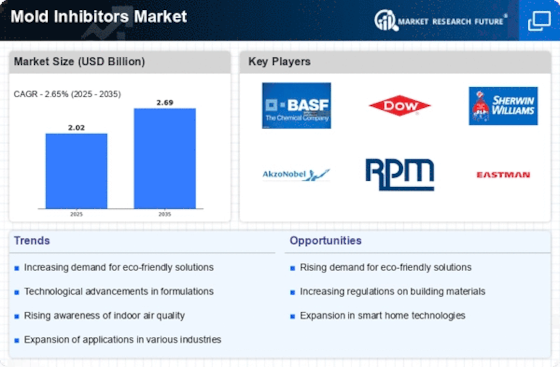
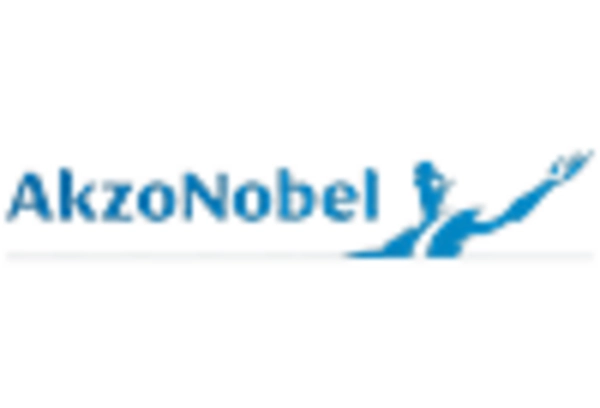


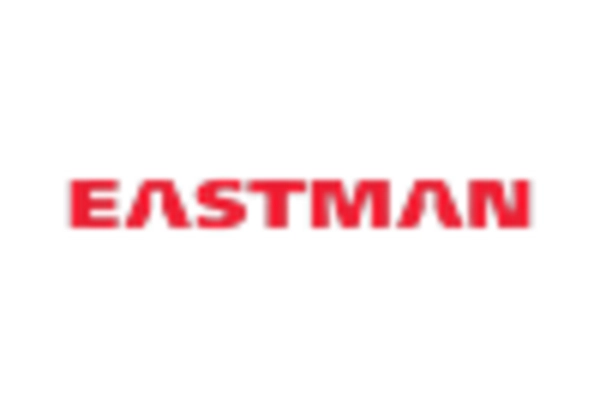
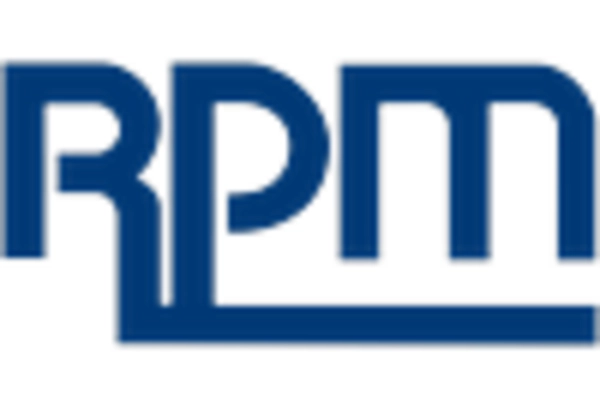
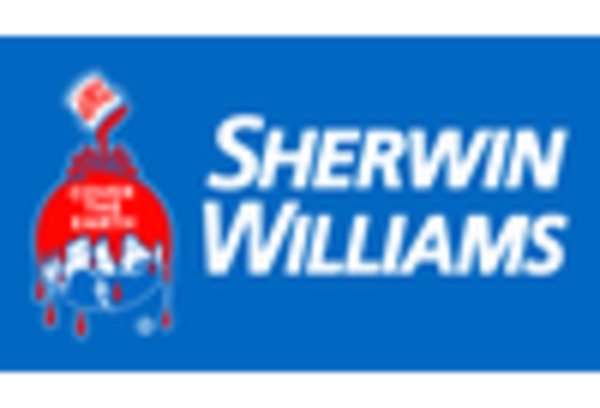









Leave a Comment